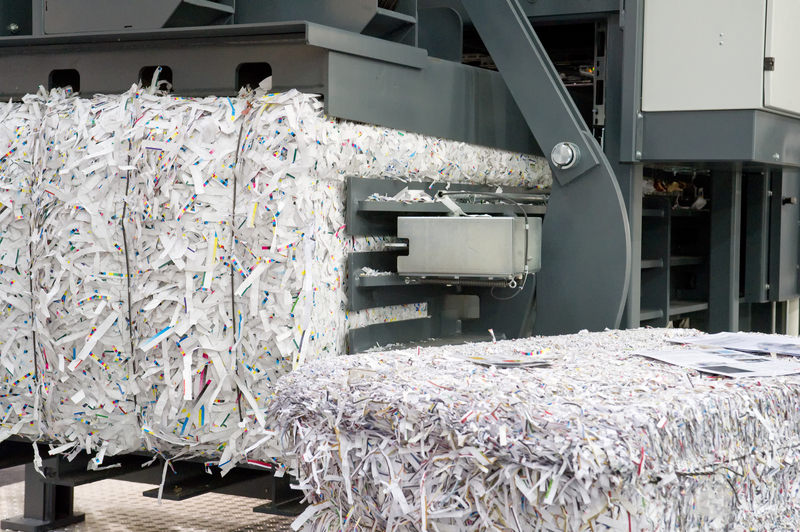Sustainable School Solutions for Better Recycling: Building Greener Learning Environments
In today's rapidly changing world, sustainability in schools is more than just a buzzword--it's a responsibility. Schools are uniquely positioned to influence future generations, setting the standard for environmental stewardship and conscious living. Better recycling practices in schools are crucial components of that effort. By implementing sustainable school solutions, educational institutions can lead the way in promoting recycling awareness, reducing carbon footprints, and fostering an eco-friendly mindset.

Why Recycling Matters in Schools
Schools, as centers of learning, daily generate large amounts of paper, plastics, food waste, and other recyclables. Effective recycling in schools not only helps in environmental conservation but also saves money and teaches students lifelong lessons about resource management. Let's break down the importance of sustainable recycling in schools:
- Environmental Impact: Schools can significantly lower the amount of waste entering landfills by recycling paper, plastic, and metals.
- Resource Conservation: Recycling reduces the need for raw materials and conserves resources such as water and energy.
- Cost Savings: Effective recycling and waste reduction programs can lead to financial savings for schools by lowering disposal and purchasing costs.
- Educational Role: By showcasing active recycling programs, schools teach students the value of environmental stewardship.
The Current State of School Recycling
Despite widespread knowledge about recycling, many schools struggle to implement efficient and comprehensive programs. Common barriers include lack of proper bins, limited education on recycling protocols, insufficient funding, and student or staff engagement. To overcome these obstacles, sustainable solutions for school recycling must be innovative, inclusive, and adaptable to each school's unique context.
Comprehensive Sustainable Solutions for Better School Recycling
Addressing recycling challenges in schools requires a multipronged approach. Here are the most effective sustainable solutions for enhancing recycling practices and cultivating environmental responsibility in educational institutions.
1. Audit and Assess Existing Practices
Before changes can be made, schools should conduct a thorough waste audit. This process identifies what types of waste are being generated, how much is being recycled, and where gaps exist. Involve students in the audit process so they can witness first-hand the impact of their behavior.
- Track the volume and type of waste produced over a week or month.
- Analyze recycling rates versus general waste disposal.
- Create a report highlighting areas for improvement.
2. Raise Awareness with Eco-Education
Integrating recycling education into the school curriculum is vital for long-term change. Teachers can weave environmental science, life skills, and civic responsibility into their lessons. Consider the following initiatives:
- Host classroom discussions on why recycling matters for the local and global environment.
- Organize workshops or presentations by sustainability experts.
- Encourage student-led campaigns, such as posters and announcements promoting recycling awareness.
*When students understand the "why" behind recycling, they're far more likely to engage in the "how."*
3. Provide Clearly Labeled Recycling Bins
A common barrier to effective recycling in schools is the lack of clearly marked, conveniently located recycling bins. To maximize participation:
- Place bins for paper, plastic, metal, and general waste in all classrooms, hallways, cafeterias, and outdoor spaces.
- Use signs with bold text and color codes to designate which materials go where.
- Instruct both staff and students regularly on the correct use of each bin type.
4. Involve the Whole Community
A sustainable school recycling program is most effective when everyone participates:
- Students: Encourage them to monitor bins, track recycling rates, and lead awareness campaigns.
- Teachers: Integrate recycling education into diverse subjects and set an example with their own recycling habits.
- Parents: Keep them informed through newsletters and involve them in school recycling challenges.
- Maintenance Staff: Provide in-depth training so they know how to properly sort and dispose of recyclables.
5. Incorporate Composting Programs
Alongside traditional recycling, composting food waste can majorly impact school sustainability. Cafeterias produce significant organic waste that, instead of going to landfills, can be composted and used in school gardens.
- Install compost bins in cafeterias and kitchens.
- Educate students about composting benefits and the dos and don'ts of composting.
- Use the finished compost to fertilize school gardens, teach biology, or even sell it for fundraising.
6. Invest in Innovative Recycling Technologies
Modern technology offers new sustainable recycling solutions for schools:
- Smart bins: Some recycling bins can identify and sort recyclables automatically, reducing contamination.
- Mobile apps: Schools can use apps to track recycling statistics or to educate the community about recycling best practices.
- 3D printing: Turn plastic waste into learning materials or art projects with recycling-compatible 3D printers.
7. Launch Green Clubs and Ambassador Programs
Student-driven green clubs and ambassador programs empower young leaders to take initiative. These groups may:
- Monitor recycling stations and report on progress regularly.
- Conduct peer education and engage classmates through creative projects.
- Organize recycling competitions or "zero waste" challenges to boost participation.
8. Set Measurable Goals and Celebrate Achievements
To keep momentum, schools should set achievable recycling targets and recognize progress. Publicly celebrate successes in assemblies, newsletters, and social media posts.
- Set monthly or quarterly recycling goals.
- Reward classes or groups showing the most improvement or effort.
- Share data and stories to inspire ongoing involvement.
Overcoming Common Challenges in School Recycling
Despite the many benefits, barriers can persist. For sustainable recycling practices to take root, schools must address:
Contamination in Recycling Bins
Ensure regular education about what items are recyclable, and conduct occasional bin audits to check for improper disposal. Use vivid signage and infographics to help make rules clear.
Lack of Funding
Many sustainable school recycling solutions require initial investment. Fundraising, seeking grants from environmental organizations, or partnering with local businesses can provide necessary financial support.
Low Engagement
Engage students with hands-on activities, competitions, and rewards. Make recycling fun, and connect efforts to topics students find meaningful--like wildlife conservation or climate change.
Integrating Sustainability Across the School Culture
Long-term impact comes from making sustainable school recycling solutions part of the school's core culture, not just an add-on program.
- Leadership Commitment: Ensure school leadership actively supports and models sustainable behaviors.
- Policy Integration: Include sustainability and recycling in school policies, student handbooks, and staff training.
- Community Partnerships: Connect with local recycling companies, eco-friendly businesses, or government agencies for additional support and resources.
Extra Steps for Greener Schools: Beyond Recycling
While better recycling programs in schools are crucial, sustainability means thinking holistically. Consider these additional strategies:
- Reduce overall consumption: Switch to digital textbooks, reusable utensils, and eco-friendly supplies wherever possible.
- Energy conservation: Implement energy-saving measures such as LED lighting, smart thermostats, and promoting "switch-off" campaigns.
- Transportation: Encourage biking, walking, carpooling, or electric school buses to cut emissions.
- Water stewardship: Install low-flow faucets and toilets, and educate students about water conservation.
Case Studies: Inspiring Examples of Sustainable School Recycling Solutions
Case Study 1: Green Meadow Elementary
This school launched a 'Trash-Free Tuesday' campaign, encouraging students to bring lunches without disposable packaging. Within a semester, landfill waste from lunches dropped by 40%. Their student-run recycling team tracks school waste and posts weekly results to motivate participation.
Case Study 2: North City High School
After assessing its recycling program's shortcomings, North City High introduced color-coded bins, held school-wide clean-out days, and partnered with a local recycling firm for educational visits. Their paper recycling rates doubled in one academic year.
Case Study 3: Sunshine Middle School
Sunshine Middle initiated a composting project for cafeteria food scraps, using the rich soil produced to start a vegetable garden on school grounds. Science classes regularly use the garden, linking curriculum to hands-on environmental responsibility.

Getting Started: A Step-by-Step Action Guide for Sustainable Recycling in Schools
- Form a Green Team: Assemble a team of students, teachers, and staff to spearhead efforts.
- Conduct a Waste Audit: Identify the most common types of school waste and current recycling rates.
- Set Goals: Define what success looks like--such as diverting a certain percentage of waste from landfills.
- Educate and Engage: Launch educational campaigns and integrate sustainability into lessons.
- Deploy Infrastructure: Set up clearly marked recycling and composting bins across campus.
- Monitor Progress: Regularly measure recycling rates and adjust strategies as needed.
- Celebrate Success: Publicly acknowledge milestones and encourage friendly competition among classes or grades.
Conclusion: The Future of Sustainable Schools and Recycling
Recycling is only one vital component of a truly sustainable school, but it is an accessible and visible starting point. Investing in comprehensive, innovative recycling solutions benefits schools, students, and the planet alike. With thoughtful planning, inclusive community involvement, and a commitment to lifelong learning, schools can lead the way to a greener future.
If your school is ready to step up its eco-game, start with these strategies and inspire a new generation of environmental leaders. Better recycling in schools isn't just about bins--it's about building responsible, caring citizens ready to make lasting change.